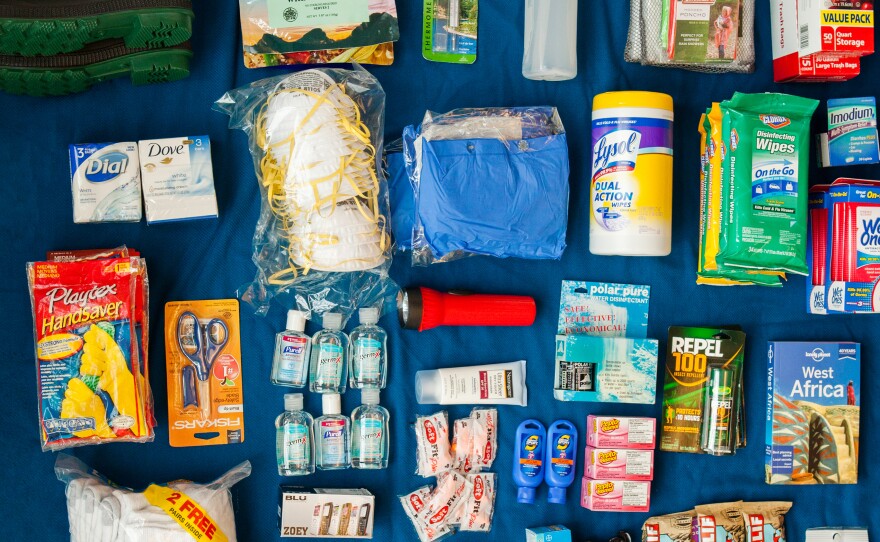Related stories
• Judging An Ebola Drug In The Middle Of A Crisis
• Reporting On Ebola: An Abandoned 10-Year-Old, A Nervous Neighborhood
• Photographing An Ebola Riot: Put Your Fear Aside And Go Forward
• Doctors Without Borders: What We Need To Contain Ebola
"I feel like Lady MacBeth, constantly scrubbing my hands," says Nurith Aizenman, global health correspondent for NPR. She arrived in Liberia this week as part of a team covering the Ebola outbreak. In the capital of Monrovia, hand washing is an obsession, not just for her but for many of the city's nearly one million residents.
So you've told me that you're hearing lots of hand washing stories.
I was talking to our interpreter – she's a reporter, a video journalist. She was telling me that just three days ago she was coming back to Monrovia after having done some reporting in an outlying rural area and reached a checkpoint between counties. There's a requirement that everyone coming from one direction or the other has to stop, get out of the car and wash hands in chlorinated water. But there was no water at this checkpoint – just this incredibly long line of people just standing there, getting more agitated, asking where is the water. A police officer is shouting at a woman, "You have to wash your hands." She says, "I agree but how can I wash my hands without water?" This is the rainy season, people are looking up at the sky. Another downpour is coming. A guy on motorcycle says, "Would it be okay if we wash our hands in the rain?"
How long did the interpreter wait?
She said, "After 20 minutes I went to the police and I said I have hand sanitizer in my car." He said, "Come and show me." She showed him and he said, "You can pass." She left them all waiting there.
And you mentioned that your driver has developed an unusual hand-washing ritual.
He says his aunt, whom he lives with, refuses to believe that Ebola is true. She think it's just other diseases with similar symptoms, like cholera and malaria. She also believes that when you get sick, someone is cursing you. He's been unable to convince her [to wash her hands], so if she's in bed sleeping or lounging in a chair, he sneaks up with soap and water in a basin and starts to wash her hands until she shoos him away.
Why are people unwilling to believe that Ebola is really happening?
One theory that has some currency is that the government is trying to get foreign aid for the Ebola outbreak and steal it for themselves.
In West Point, where that raid on the Ebola holding center happened on Saturday evening, people in that slum are convinced the government is trying to get rid of them, to make them leave their homes, and there is a lot of suspicion that this talk of Ebola is just a government ploy to force people to leave.
You brought a lot of supplies to keep the germs at bay. Are you using them?
One thing I've found is that I sometimes just put on surgical gloves — not so much because I think I'm going to be touching something that could be infected but because wearing surgical gloves makes me less likely to touch my face. The goal, of course, is not to put yourself in a position where there's a chance you'll end up touching something you shouldn't touch. That said, you can't be too careful.
Do you get any stares for wearing surgical gloves?
No one bats an eye. As we were landing in Liberia Sunday morning on a flight from Casablanca, the flight attendants put on surgical gloves and a few other passengers did.
Copyright 2014 NPR. To see more, visit http://www.npr.org/.






